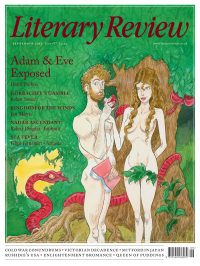Christopher Andrew
The Big Chill
The Cold War: A World History
By Odd Arne Westad
Allen Lane 710pp £30
The most difficult question posed by the Cold War is why it did not end in hot war. Odd Arne Westad, a professor of history at Harvard, argues persuasively that it very nearly did: ‘On a couple of occasions, we were much closer to nuclear devastation than anyone but a few people realized. Nuclear war could have broken out by accident, or as a result of intelligence failures.’ In 1962 Fidel Castro seems to have believed that the Cuban Missile Crisis would end in thermonuclear warfare. In what he probably intended as a farewell letter to Nikita Khrushchev, he urged him to take the ‘harsh and terrible’ decision to launch a nuclear first strike against the United States if it invaded Cuba.
When peace between the two nuclear superpowers hung by a thread during the missile crisis, it is difficult to resist the conclusion (which Westad does not quite arrive at) that the personalities of the US and Soviet leaders made a major, perhaps crucial, difference. CIA files reveal that, unlike President

Sign Up to our newsletter
Receive free articles, highlights from the archive, news, details of prizes, and much more.@Lit_Review
Follow Literary Review on Twitter
Twitter Feed
It wasn’t until 1825 that Pepys’s diary became available for the first time. How it was eventually decrypted and published is a story of subterfuge and duplicity.
Kate Loveman tells the tale.
Kate Loveman - Publishing Pepys
Kate Loveman: Publishing Pepys
literaryreview.co.uk
Arthur Christopher Benson was a pillar of the Edwardian establishment. He was supremely well connected. As his newly published diaries reveal, he was also riotously indiscreet.
Piers Brendon compares Benson’s journals to others from the 20th century.
Piers Brendon - Land of Dopes & Tories
Piers Brendon: Land of Dopes & Tories - The Benson Diaries: Selections from the Diary of Arthur Christopher Benson by Eamon Duffy & Ronald Hyam (edd)
literaryreview.co.uk
Of the siblings Gwen and Augustus John, it is Augustus who has commanded most attention from collectors and connoisseurs.
Was he really the finer artist, asks Tanya Harrod, or is it time Gwen emerged from her brother’s shadow?
Tanya Harrod - Cut from the Same Canvas
Tanya Harrod: Cut from the Same Canvas - Artists, Siblings, Visionaries: The Lives and Loves of Gwen and Augustus John by Judith Mackrell
literaryreview.co.uk